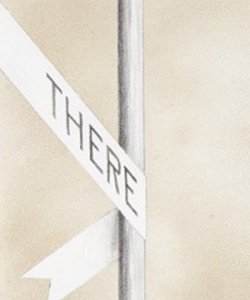Olga Garcia: How to Eat a Workshop
Poet Olga Garcia, author of Falling Angels: Cuentos y Poemas and the chapbook Lovely Little Creatures, blogs about her experience facilitating the P&W-supported workshop at Robidoux Library in Riverside, California, during May 2011.
Anton Chekhov wrote, “Don’t tell me the moon is shining; show me the glint of light on broken glass.” I often use Esmeralda Santiago’s “How to Eat a Guava” to illustrate Chekhov’s point. In addition, I lay out an altar of fruits, vegetables, and sensory objects—there’s labor in carting around pineapples, baby watermelons, and football-sized conch shells, but for me the altar is ritual, the first thing I put up and the last thing I take down. Nowhere has the altar proven more effective than it did at Robidoux Library in Riverside, California.
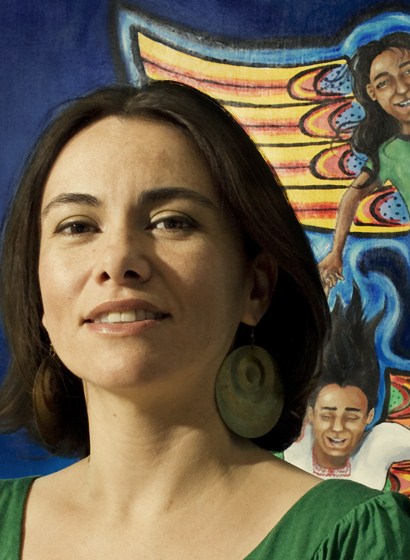 Imagine a stampede of thirty teenagers who gravitate towards
the altar, handling radishes and jalapeños, asking “Are we gonna eat these?”
One spiky-haired kid quickly falls in love with a coconut. “Can I have this?
Please!? Please!?” Others follow his lead.
Luckily, I’m not the only adult in the room. Arlene Cano, coordinator of the
Jurupa Reads program, two English teachers from nearby schools, and the library’s
youth coordinator are also present. Together, we manage to get everyone seated.
Imagine a stampede of thirty teenagers who gravitate towards
the altar, handling radishes and jalapeños, asking “Are we gonna eat these?”
One spiky-haired kid quickly falls in love with a coconut. “Can I have this?
Please!? Please!?” Others follow his lead.
Luckily, I’m not the only adult in the room. Arlene Cano, coordinator of the
Jurupa Reads program, two English teachers from nearby schools, and the library’s
youth coordinator are also present. Together, we manage to get everyone seated.
We begin with a listening game. I read “How to Eat a Guava” as they jot down phrases from the text that trigger their senses. When I ask for volunteers to share, they respond with a manic show of hands. “Dark green guava,” says one student. “The size of a tennis ball” and “prickly stem end,” adds another. “It smells like summer afternoons and hopscotch under a mango tree.”
Next, they’re invited to visit the altar and choose an object for our first writing exercise. They swarm the table. The spiky-haired kid clutches the coconut. I encourage them to smell and taste some of the items. They cringe and say “Ugh!” at the small bag of salted dried fish. I give them chia to taste. When the tiny, flavorless seeds magically gel on their tongues, they describe the texture as slimy, soft, Jello-y. One student grimaces. “Gross!” She rushes to spit the seeds into the trash.
The writing exercises feel chaotic because they’re fidgeting in their seats, calling out, “Me! Me! Can you help me?” But when they share aloud... poetry comes alive. The coconut transforms into a brown, hairy sun in an alien world. A seashell triggers the memory of a day at the beach with a now-deceased father. A waxy green poblano sizzles on a mother’s stove.
At the end of the workshop, they beg to keep the altar items. “Please! ¡Por favor!” I say yes to the edibles. Coconut kid beams. Others seize the pineapple, bananas, even the dry hibiscus flowers, and the cinnamon sticks. When they finally disperse, I’m spent yet completely satisfied. On the table, they leave behind scattered shells and stones—skeletal remains of an altar well feasted on.
Photo: Olga Garcia. Credit: Weenobee.com.
Major support for Readings/Workshops events in California is provided by The James Irvine Foundation. Additional support comes from the Friends of Poets & Writers.





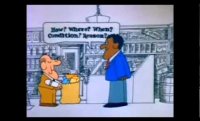
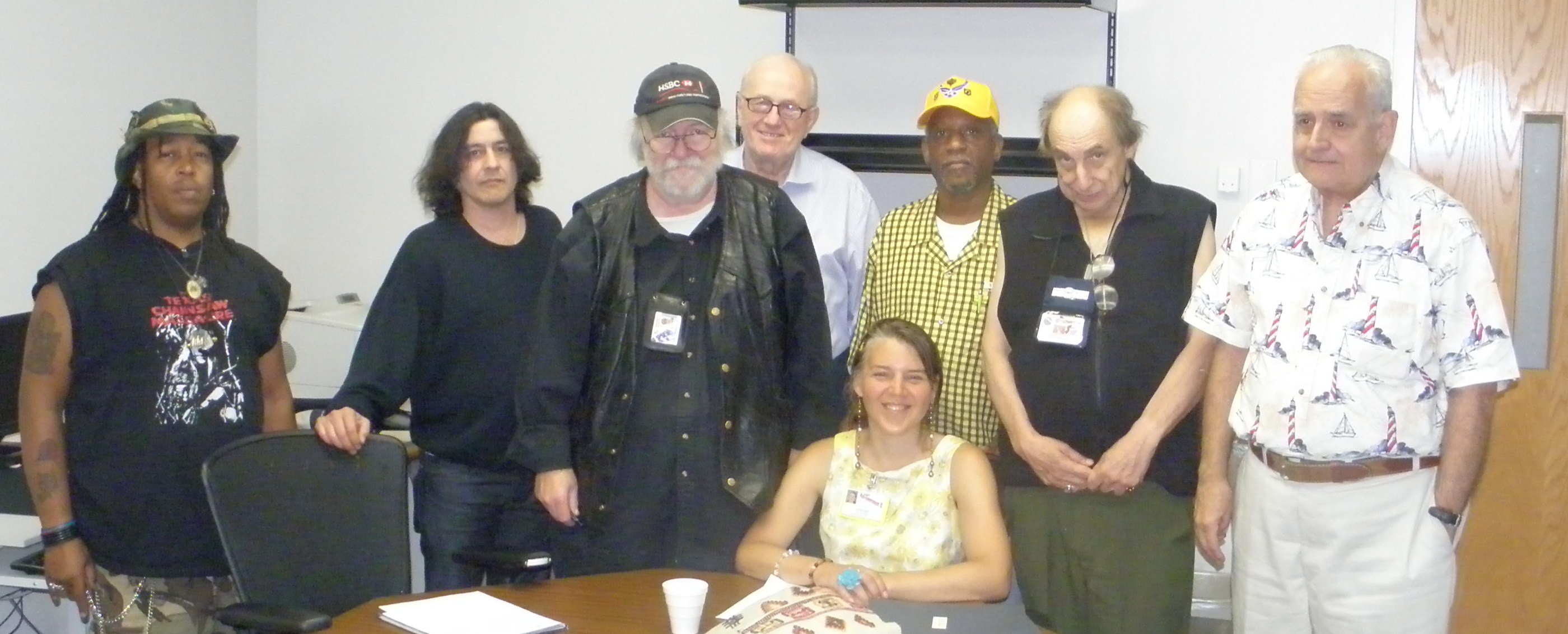
![What's My Line? - Carl Sandburg; Milton Berle; Nick Adams [panel] (Sep 11, 1960)](https://www.pw.org/files/styles/video_thumb_medium/public/media-oembed/i.ytimg.com/vi/GkJ2-rP78TU/hqdefault.jpg?itok=CRKRwP_1)
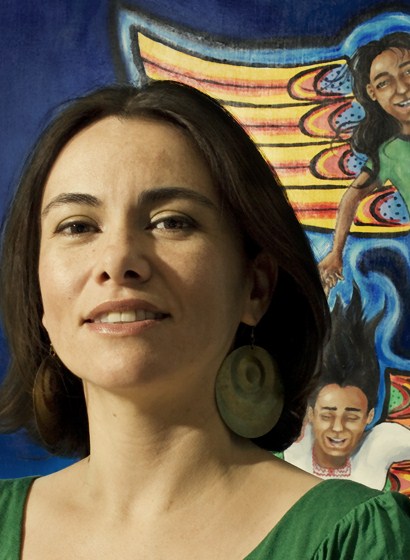 When it comes to border towns,
Calexico has it all: the U.S.-Mexico border you can walk up to, sniff,
stare at, curse, or cross; señores in sombreros and thick leather belts; big women
in church dresses, waving religious pamphlets in the air; a corner stop featuring
menudo, donuts, and border patrol agents. Sure, there’s a Starbucks, a few Walmarts,
but what tugs at me is the historic shopping district, the brick archways and
columns, the cement bus benches, and the discount stores.
When it comes to border towns,
Calexico has it all: the U.S.-Mexico border you can walk up to, sniff,
stare at, curse, or cross; señores in sombreros and thick leather belts; big women
in church dresses, waving religious pamphlets in the air; a corner stop featuring
menudo, donuts, and border patrol agents. Sure, there’s a Starbucks, a few Walmarts,
but what tugs at me is the historic shopping district, the brick archways and
columns, the cement bus benches, and the discount stores. 
